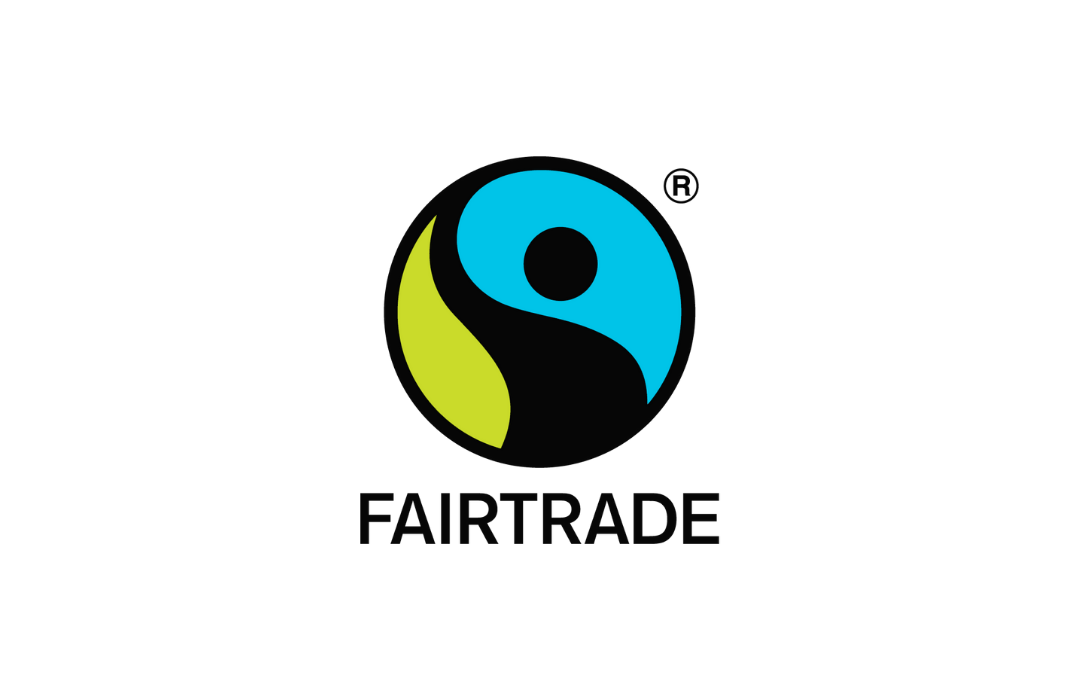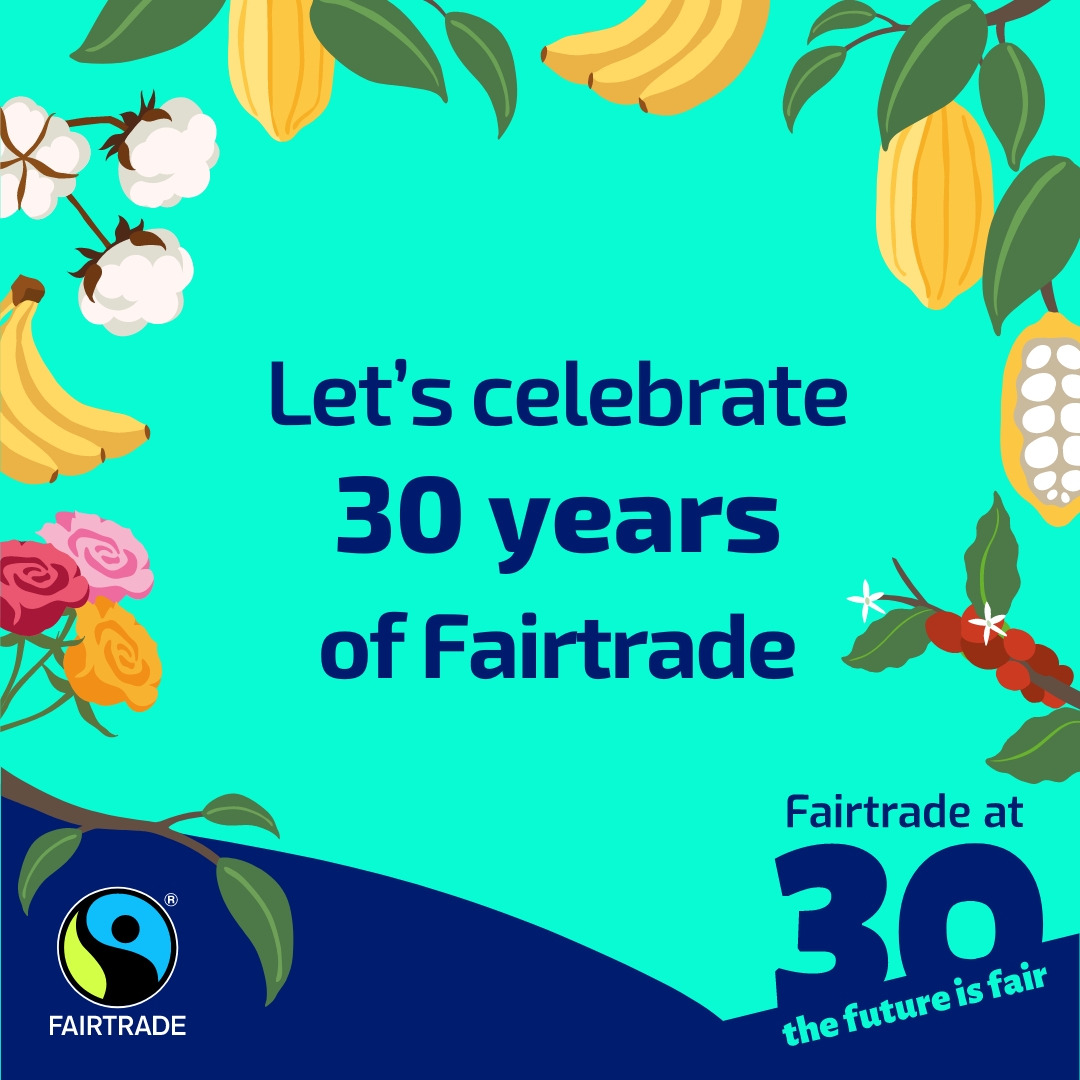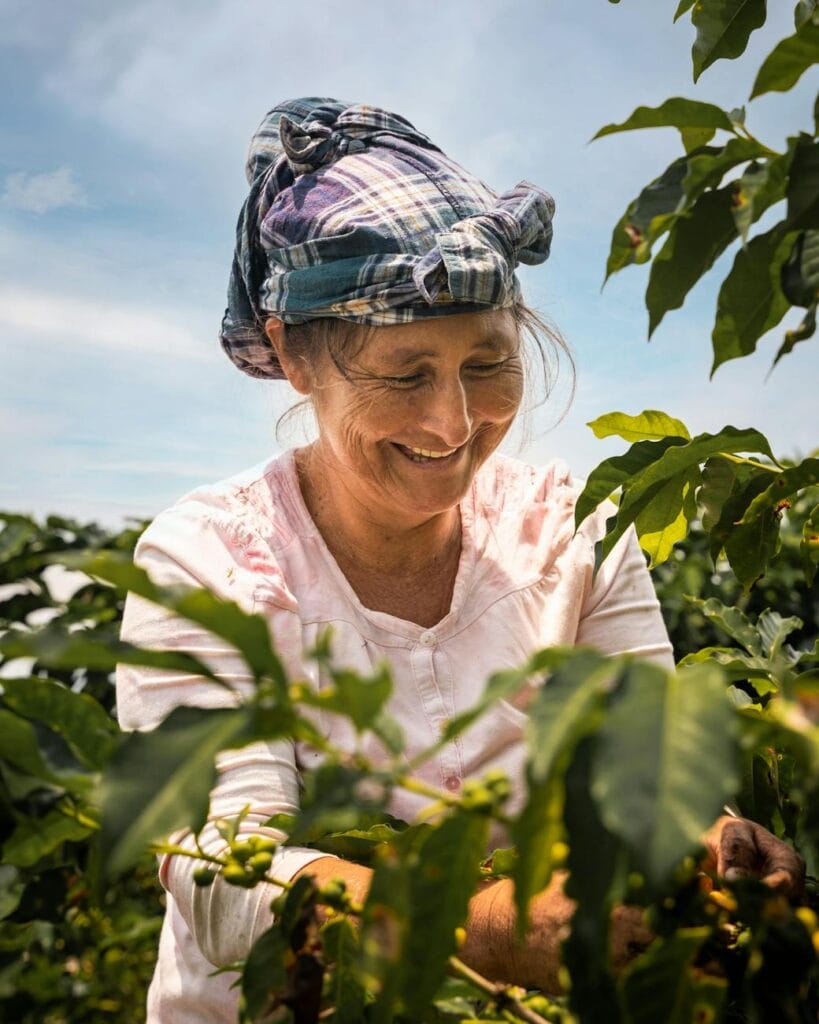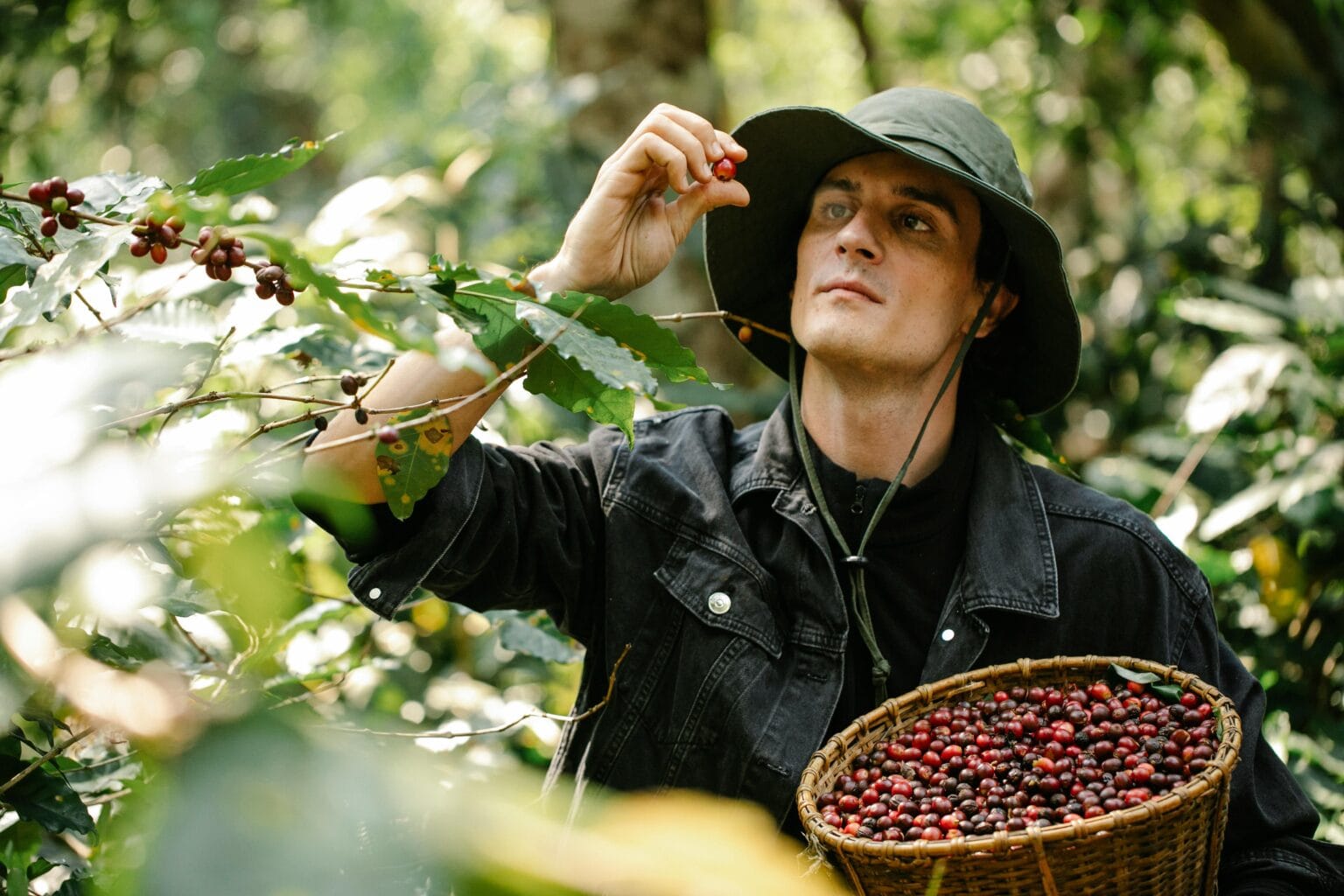Fairtrade coffee discovery: Ever heard of the fairtrade foundation behind the Fairtrade label?


For coffee lovers, that first sip in the morning is a ritual, a moment of pure satisfaction.
Brewing a Better Future: The Fairtrade Foundation’s Impact on Coffee
But behind that delicious cup lies a complex journey, often starting with small-scale farmers facing uncertain prices and challenging conditions.
This is where the Fairtrade Foundation steps in, aiming to brew a better future for both coffee and the people who grow it.
Fairtrade: More Than Just a Label
Founded in 1994, the Fairtrade Foundation goes beyond simply slapping a label on a product.
They establish a set of rigorous standards that ensure fair prices, decent working conditions, and community development projects for farmers in developing countries. This translates to:
- Fairtrade Minimum Price: This safety net guarantees farmers a minimum price for their coffee, even when market prices fluctuate wildly.
- Fairtrade Premium: An additional sum paid on top of the selling price, allowing farmers to invest in their businesses and communities. This can include improving processing facilities, educational programs, or healthcare initiatives.
- Focus on Sustainability: Fairtrade promotes environmentally friendly practices like shade-grown coffee, which benefits biodiversity and soil health.
Impact Beyond the Cup
The Fairtrade Foundation’s impact extends far beyond the quality of our morning brew. Here’s how it empowers coffee-growing communities:
- Economic Stability: Fairtrade prices help farmers earn a living wage, allowing them to invest in their farms and families’ futures.
- Improved Living Conditions: The Fairtrade Premium funds vital projects like clean water access, education initiatives, and healthcare programs.
- Empowerment for Women: Fairtrade promotes gender equality within cooperatives, giving women more control over their income and decision-making.
Making a Difference, One Cup at a Time
While the Fairtrade movement faces challenges, its positive impact on the lives of coffee farmers is undeniable.
By choosing Fairtrade coffee, you’re not just making a delicious choice, you’re choosing to support a more just and sustainable coffee industry.
Here’s what you can do:
- Look for the Fairtrade label when buying coffee beans or brewing equipment at your local store.
- Support cafes that offer Fairtrade coffee and inquire about their sourcing practices.
- Spread the word to your friends and family about the importance of Fairtrade.
Together, we can raise a cup to a more equitable and sustainable future for coffee and the people who bring it to us.
The Origins of Fairtrade
The Fairtrade movement has its roots in a simple yet powerful idea: farmers and workers in developing countries deserve fair prices for their produce and labour.
This concept, which emerged in the mid-20th century, has since grown into a global phenomenon that has transformed the way we think about trade and consumption.
The Fairtrade Foundation, established in the UK in 1992, has been at the forefront of this movement, championing the rights of producers and promoting sustainable farming practices.
From humble beginnings, the foundation has grown to become a significant force in the UK’s ethical consumer landscape, with its distinctive mark now recognised by 93% of UK shoppers (Fairtrade Foundation, 2024).
The Evolution of Fairtrade
The journey of Fairtrade from a niche concept to a mainstream movement is a testament to the power of consumer consciousness.
Furthermore, it is one of various signs for the growing demand for ethical products.
In the early days, Fairtrade products were primarily sold in specialist shops and through alternative trade organisations.
However, as awareness grew and demand increased, major retailers began to stock Fairtrade products, significantly expanding their reach and impact.
Today, Fairtrade products can be found in supermarkets, cafes, and restaurants across the UK.
Additionally, coffee is one of the most popular Fairtrade commodities.
The rise of Fairtrade coffee, is remarkable, with sales increasing by 14% in 2020 despite the global pandemic (Fairtrade Foundation, 2023).
This growth reflects not only the quality of Fairtrade coffee but also the increasing awareness among consumers about the importance of ethical sourcing.
The Fairtrade Difference
At the heart of the Fairtrade model is the commitment to ensuring fair prices for producers.
This is achieved through the Fairtrade Minimum Price, which acts as a safety net for farmers when market prices fall below a sustainable level.
In addition to this, Fairtrade producers receive a Fairtrade Premium.
This is an extra sum of money paid on top of the selling price that farmers and workers can invest in business or community projects of their choice.
In 2021, despite the ongoing global challenges, the Fairtrade Premium increased by 5% from 2020, reaching over €200 million (Fairtrade Foundation, 2023).
This additional income is often used to fund a wide range of projects.
Additionally, such funds may fuel housing and education facilities or to buy better farming equipment and techniques.
Furthermore, Fairtrade goes beyond just fair prices.
The Fairtrade Standards promote sustainable farming practices, prohibit child labour, and encourage gender equality.
These standards are regularly audited to ensure compliance, providing consumers with assurance that their purchases are making a real difference.
The Impact on Coffee Farmers
The coffee industry, in particular, has seen significant benefits from the Fairtrade movement.
Coffee is one of the world’s most traded commodities.
Yet, many coffee farmers struggle to make a living from their crops.
Fairtrade has helped to address this imbalance by ensuring that farmers receive a fair price for their beans.
A study by the Natural Resources Institute found that Fairtrade coffee farmers in Tanzania earned 30% more than non-Fairtrade farmers (Natural Resources Institute, 2022).
This increased income allows farmers to invest in their farms, improve their living conditions, and send their children to school.
Moreover, Fairtrade has empowered coffee farmers by giving them a voice in the global marketplace.
Through Fairtrade cooperatives, farmers can negotiate better terms of trade and have a say in how the Fairtrade Premium is spent in their communities.
This empowerment extends beyond economic benefits, fostering a sense of dignity and control over their livelihoods.
Environmental Sustainability
Fairtrade’s impact extends beyond social and economic benefits to include significant environmental advantages.
The Fairtrade Standards include strict environmental criteria that prohibit the use of certain pesticides and encourage organic farming practices.
As a result, many Fairtrade coffee farms have become havens of biodiversity, preserving local ecosystems and protecting wildlife.
A report by the Food and Agriculture Organization of the United Nations (2023) found that Fairtrade coffee farms had 30% higher carbon sequestration rates compared to conventional farms.
This not only helps in the fight against climate change but also ensures the long-term sustainability of coffee production.
Furthermore, the Fairtrade Premium has enabled many farmers to invest in climate adaptation strategies, such as drought-resistant coffee varieties and improved irrigation systems.
These investments are crucial in the face of increasing climate volatility, which poses a significant threat to coffee production worldwide.
Challenges and Criticisms
Despite its many successes, the Fairtrade movement has not been without its critics.
Some argue that the Fairtrade model doesn’t go far enough in addressing global inequalities, while others question the effectiveness of the certification process.
One common criticism is that Fairtrade benefits only a small percentage of farmers in developing countries.
While this is true to some extent, it’s important to note that the impact of Fairtrade extends beyond certified producers.
The existence of Fairtrade has helped to raise standards across the industry, encouraging other certification schemes and pushing companies to improve their sourcing practices.
Another challenge is the complexity of global supply chains, which can make it difficult to ensure that Fairtrade standards are being met at every stage of production.
The Fairtrade Foundation has responded to this by continually improving its auditing processes and increasing transparency in its supply chains.
The Future of Fairtrade
As we look to the future, the role of Fairtrade in promoting sustainable and ethical trade seems more important than ever.
With growing consumer awareness about the social and environmental impacts of their purchases, demand for Fairtrade products is likely to continue to rise.
The Fairtrade Foundation’s strategy for 2021-2025 focuses on building a world where fairness is the norm (Fairtrade Foundation, 2024).
This ambitious goal involves not only expanding the reach of Fairtrade products but also advocating for systemic change in global trade practices.
One key area of focus is climate change, which poses a significant threat to many Fairtrade producers.
The foundation is working to support farmers in adapting to changing weather patterns and implementing sustainable farming practices.
Another important aspect of Fairtrade’s future is the increasing use of technology to improve traceability and transparency in supply chains.
Blockchain technology, for example, is being explored as a way to provide consumers with more detailed information about the journey of their Fairtrade products from farm to shelf.
The Role of Consumers
Consumers play a crucial role in the success of the Fairtrade movement.
By choosing Fairtrade products, shoppers can directly contribute to improving the lives of farmers and workers in developing countries.
The power of consumer choice is evident in the growth of Fairtrade sales, which have continued to rise even in challenging economic times.
In the UK, 65% of consumers say they choose Fairtrade products when available (Fairtrade Foundation, 2023).
This level of consumer support sends a powerful message to businesses about the importance of ethical sourcing.
However, there’s still work to be done in educating consumers about the impact of their choices.
Many people are unaware of the full extent of Fairtrade’s impact or the range of Fairtrade products available.
Increasing awareness and understanding of Fairtrade remains a key priority for the foundation.
Fairtrade and the Coffee Industry
The coffee industry has been one of the biggest beneficiaries of the Fairtrade movement, and it continues to be a key focus for the Fairtrade Foundation.
Coffee is the second most valuable commodity exported by developing countries, yet many coffee farmers struggle to make a living from their crops.
Fairtrade has helped to address this imbalance by ensuring that farmers receive a fair price for their beans and have access to the global market.
The impact of Fairtrade on the coffee industry goes beyond just fair prices.

Bitterroot Coffee Blend (Dark French Roast) from Sustainably B-Corp Certified Suppliers
Fairtrade has helped to improve quality standards, encourage sustainable farming practices, and promote biodiversity on coffee farms.
Many Fairtrade coffee cooperatives have invested their Fairtrade Premium in quality improvement programs, resulting in higher-quality beans that command premium prices on the international market.
Moreover, Fairtrade has played a crucial role in addressing some of the biggest challenges facing the coffee industry, such as climate change and price volatility.
By providing a stable income and supporting sustainable farming practices, Fairtrade is helping to ensure the long-term viability of coffee production in many regions.
Conclusion: The Ongoing Journey of Fairtrade
The story of the Fairtrade Foundation is one of remarkable progress and ongoing challenges.
From its inception in 1992 to its current status as a globally recognised ethical standard, Fairtrade has made significant strides in promoting fair trade practices and improving the lives of farmers and workers in developing countries.
However, the work of Fairtrade is far from complete.
As global trade continues to evolve and new challenges emerge, the foundation must continue to adapt and innovate to ensure that its mission remains relevant and effective.
The success of Fairtrade depends on the continued support of consumers, businesses, and policymakers who believe in the power of trade to create positive change.
By choosing Fairtrade products, advocating for fair trade policies, and supporting the work of the Fairtrade Foundation, we can all play a part in building a more equitable and sustainable global economy.
As we look to the future, the principles of Fairtrade – fair prices, decent working conditions, local sustainability, and fair terms of trade – remain as important as ever.
The Fairtrade Foundation’s work serves as a reminder that our everyday choices as consumers can have a profound impact on the lives of people around the world.
In a global marketplace often characterised by inequality and exploitation, Fairtrade stands as a beacon of hope and a model for how trade can be a force for good.
References
Fairtrade Foundation (2023) ‘Annual Impact Report 2022’, Fairtrade Foundation, London.
Fairtrade Foundation (2024) ‘Fairtrade Foundation Strategy 2021-2025’, Fairtrade Foundation. Available at: https://www.fairtrade.org.uk/what-is-fairtrade/who-we-are/fairtrade-foundation-strategy-2021-2025/ (Accessed: 22 September 2024).
Food and Agriculture Organization of the United Nations (2023) ‘The State of Agricultural Commodity Markets 2022’, FAO, Rome.
Natural Resources Institute (2022) ‘The Impact of Fairtrade: A Review of Research Evidence 2019-2022’, University of Greenwich, London.
The Week (2024) ‘Fairtrade explained in 60 seconds: ideas that changed the world’, The Week. Available at: https://theweek.com/52-ideas-that-changed-the-world/102696/52-ideas-that-changed-the-world-9-fairtrade (Accessed: 22 September 2024).
Citations
[1] https://theweek.com/52-ideas-that-changed-the-world/102696/52-ideas-that-changed-the-world-9-fairtrade
[2] https://www.fairtrade.org.uk/what-is-fairtrade/who-we-are/fairtrade-foundation-strategy-2021-2025/
[3] https://www.fairtrade.org.uk/what-is-fairtrade/who-we-are/
[4] https://www.fairtrade.org.uk/media-centre/our-spokespeople/
[5] https://en.wikipedia.org/wiki/Organic_certification
[6] https://esquirescoffee.co.uk/news/trends-uk-coffee-shop-industry/
[7] https://www.mintel.com/insights/food-and-drink/the-coffee-and-coffee-shop-industries-what-consumers-want-in-coffee/
[8] https://eggsoldiers.co.uk/insights-lab/the-future-of-coffee-three-uk-opportunity-areas-2024



That is really intereѕting, You’re an overly ρrofessional blogger.
I have joineԀ your feed and sit up for looking for extra of
youг excellent post. Also, I’ve shared your site in my social networks